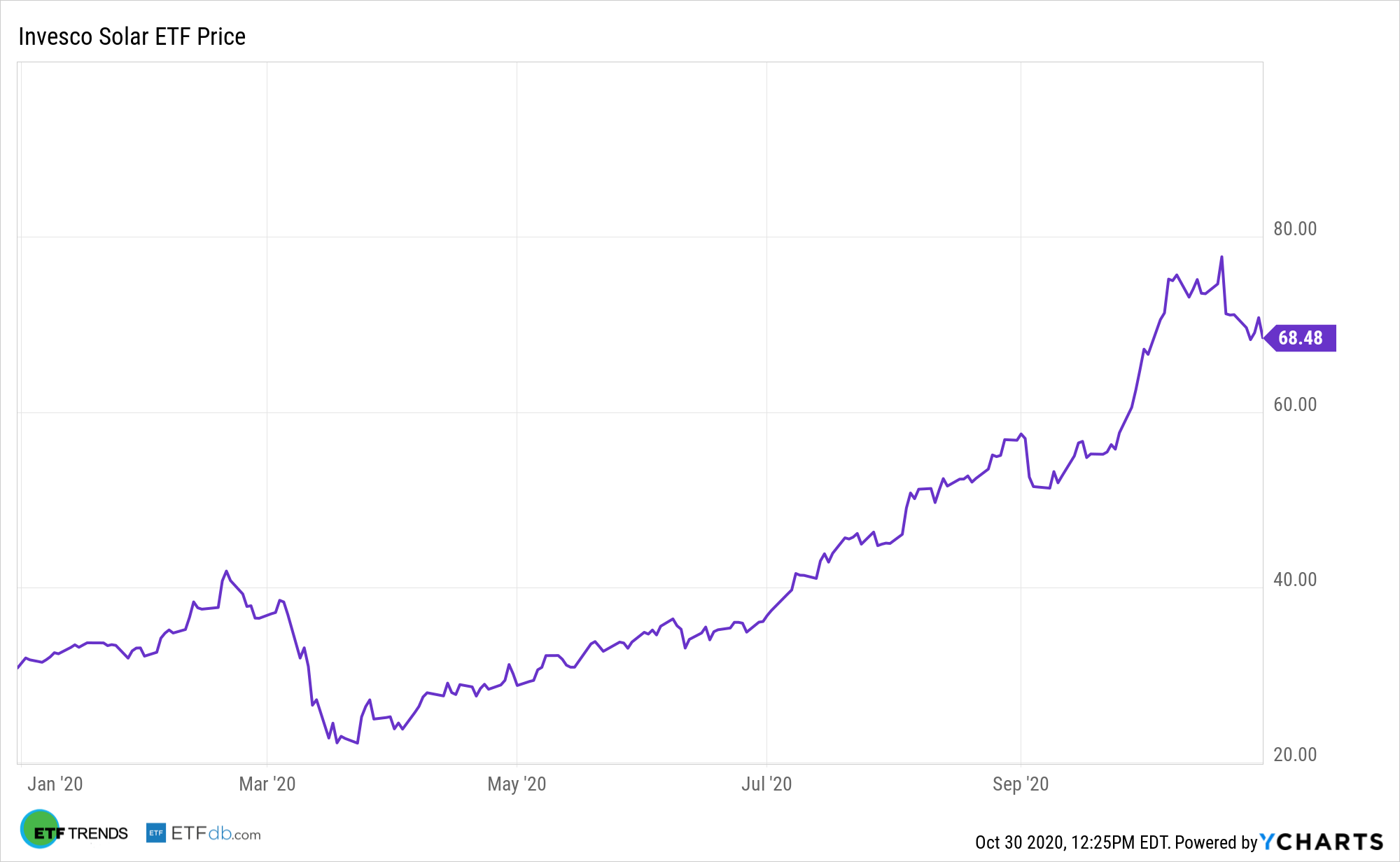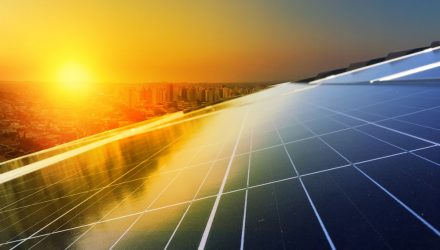In 2019, top ETFs could almost be narrowed down to ‘everything’ given the decade-long bull market. 2020, however, has been thornier. Nevertheless, a Market Realist article listed their top 20 ETFs to buy, which included the Invesco Solar ETF (TAN).
And given the way the fund has delivered returns of over 120% year-to-date per Yahoo Finance numbers, why shouldn’t the fund be on the list? TAN, which started back in 2008, seeks to track the investment results of the MAC Global Solar Energy Index, which is designed to provide exposure to companies listed on exchanges in developed markets that derive a significant amount of their revenues from the following business segments of the solar industry: solar power equipment producers including ancillary or enabling products.

“The Invesco Solar ETF trades under the symbol “TAN” and has net assets of $633 million,” the article by Rachel Curry noted. “While it does hold a high expense ratio of 0.71 percent, you can make up for it with long-term growth.”
Can’t get enough of renewable energy? Here are additional funds to consider in the clean energy space:
- ALPS Clean Energy ETF (ACES): seeks investment results that correspond (before fees and expenses) generally to the performance of its underlying index, the CIBC Atlas Clean Energy Index. The underlying index utilizes a rules-based methodology developed by CIBC National Trust Company, which is designed to provide exposure to a diverse set of U.S. and Canadian companies involved in the clean energy sector including renewables and clean technology. The fund is non-diversified.
- KraneShares MSCI China Environment Index ETF (KGRN): seeks to provide investment results that correspond to the price and yield performance of MSCI China IMI Environment 10/40 Index. The underlying index is a modified, free float-adjusted market capitalization weighted index designed to track the equity market performance of Chinese companies that derive at least a majority of their revenues from environmentally beneficial products and services, as determined by MSCI Inc.
- VanEck Vectors Low Carbon Energy ETF (SMOG): seeks to replicate as closely as possible, before fees and expenses, the price and yield performance of the Ardour Global IndexSM (Extra Liquid). “Low carbon energy companies” refers to companies primarily engaged in alternative energy, including renewable energy, alternative fuels and related enabling technologies (such as advanced batteries).
For more news and information, visit the Innovative ETFs Channel.








